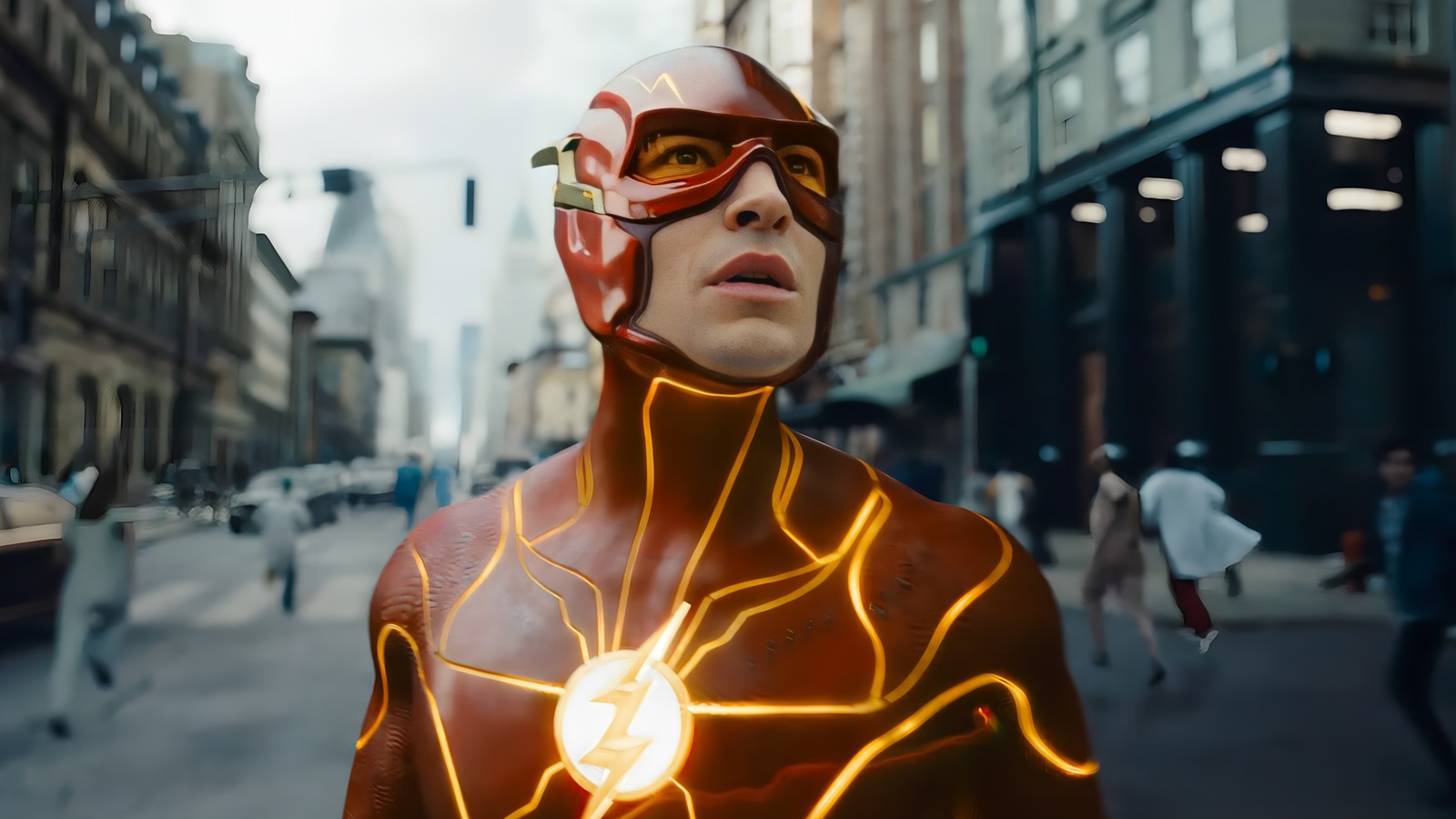
The Flash: Where Exactly Does The DC Movie Universe Stand After The Movie Ends? – Looper
This article contains spoilers for “The Flash”
No matter how many cameos and Bat-folks “The Flash” features, it’s ultimately a movie about two things: Barry Allen’s (Ezra Miller) personal development and the complicated past- and future-changing “spaghetti” multiverse time travel can create. While exploring these things, the film introduces a whole lot of new concepts, as well as a number of intriguing alternate-universe characters, some of whom are extremely familiar.
The movie’s climax more or less confirms that every major DC-adjacent project — from the Tim Burton “Superman” movie that never existed to the 1960s “Batman” TV show that very much did — takes place in some alternate universe. In fact, the bulk of “The Flash” seems to take place in the Burton “Batman” universe, where Michael Keaton’s Batman is the only high-profile costumed hero.
Then again, “The Flash” is also the second to last movie in the DC Extended Universe, which is set to give way to the new James Gunn-Peter Safran DCU after “Aquaman and the Lost Kingdom.” So, what exactly is its impact on the DC movie universe’s future? Is George Clooney the main Batman again? What does Aquaman do when he wakes up in the puddle Barry leaves him in the post-credits scene? Will the Flash himself appear in more movies, or have we seen the last of him? Few of these questions have concrete answers quite yet, but based on what we know about the franchise’s future, here’s what seems most likely.
The Flash isn’t necessarily an official part of the new DCU, but Barry Allen might be
 Rodin Eckenroth/Getty Images
Rodin Eckenroth/Getty Images
The big thing that determines much of “The Flash’s” impact on the DC movie universe is whether the movie is considered a part of the DCU. Right now, it doesn’t appear to be. Of the four DC movies that were in production when Gunn became the DC Studios co-president, the only one he’s confirmed to be in the DCU is “Blue Beetle.” Going by this logic, this would make “The Flash” an “Elseworlds” story that effectively takes place in its own bubble universe, much like the ones we see in its climax. Its events certainly happen — they’re just not part of the mainline DCU, and therefore wacky things like George Clooney returning as Bruce Wayne can take place.
Of course, all of this can change at a moment’s notice. Gunn could fire up his Twitter tomorrow and announce that “The Flash” is a DCU movie, which would mean that its multiverse concepts, time-traveling antics, and Clooney Bruce Waynes are all legitimate parts of the mainline story … at least until Barry takes another jog into the chronoball.
As for the Flash himself, the character is such a key DC hero that it would be frankly shocking if a version of him wouldn’t make an appearance in the DCU at some point down the line. It remains to be seen whether “The Flash” will get a sequel and if the controversy-riddled Miller will be recast if it happens, but Barry Allen could still have a future in the DCU if “The Flash” performs at the box office. After all, Gunn has said that while the movie is something of a reset, it’s by no means a hard reset. “Flash resets many things, not all things,” he’s commented on the subject. “Some characters remain the same some do not.”
The movie sets precedent for exciting DCU opportunities
 DC/YouTube
DC/YouTube
“The Flash” is an ideas movie, and the “reset” Gunn mentions is quite likely the introduction of the multiverse — not so much the alternate-universes concept itself, but the opportunity it provides to mix and match characters. “The Flash” has plenty of fun doing this, and it proves that the concept can work pretty well. By teaming Tim Burton-era Batman (Michael Keaton) with two different Barry Allens and franchise newcomer Kara Zor-El (Sasha Calle) and putting them against “Man of Steel” villain General Zod (Michael Shannon), the movie employs a fun “smashing different action figures together” strategy that seems like a great fit for Gunn. The introduction of this concept may be “The Flash’s” true legacy in the long run, as it acts as the precedent that gives the DCU free rein to use old and new characters as they see fit.
Combined with the “Elseworlds” concept, this means that the DCU can now operate … however it likes, really, which is probably just how Gunn and Safran like it. If they want to roll with Jason Momoa’s Aquaman going forward, they can totally keep him and bring him in the next Justice League with whoever ends up playing the new mainline versions of Superman, Batman, Wonder Woman, and so forth. On the other hand, if they want to oust an actor, “The Flash’s” endless amount of alternate universes and changing futures have given the DCU a perfect toolkit to replace the characters with new versions — which, come to think of it, is pretty much what the movie does to Ben Affleck’s Batman.
It’s hard to believe that the DCU wouldn’t establish a mainline universe, because it’ll probably need a throughline for longer arcs, and people will likely want to know what the “main” versions of characters are to truly care about them. Still, even with this very minor limitation, it’s easy to see why Gunn has praised “The Flash.” After all, the movie has given his DCU the ultimate gift: Nigh-total creative freedom.









































































